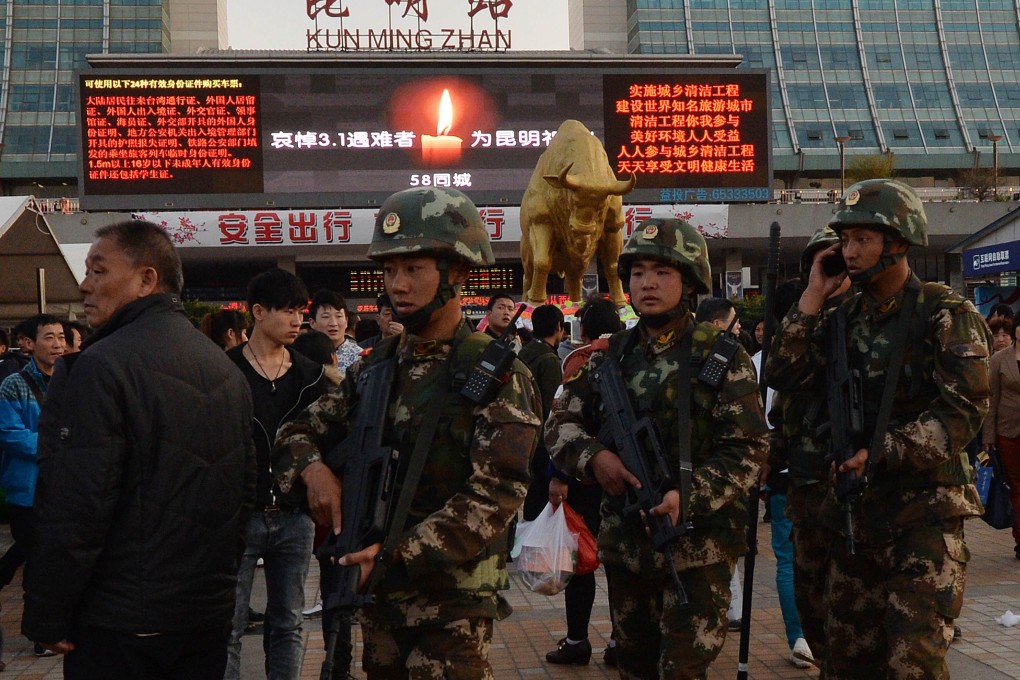No cause can justify the cowardly attack in Kunming
Twice now in the lead-up to key national political meetings that attract international attention, terrorists have targeted civilians not remotely connected with their cause.

Twice now in the lead-up to key national political meetings that attract international attention, terrorists have targeted civilians not remotely connected with their cause. A shocking suicide car-bomb attack by an ethnic Uygur family in Tiananmen Square last October, killing two tourists, pales in comparison the latest outrage - a mass knife attack that left 29 innocent people dead at Kunming railway station in in the country's southwest.
The first came ahead of the third plenary session of the 18th party congress. The latest came ahead of this week's CPPCC and NPC meetings. The authorities have blamed both attacks on Uygur separatists from the autonomous northwestern region of Xinjiang , which has been wracked by continuing unrest since ethnic clashes with the majority Han Chinese in the capital Urumqi left about 200 dead in 2009. What set the latest atrocity apart was the unmitigated, indiscriminate savagery of the attack by knife-wielding men and women on everyone in sight, including the elderly and children.
These two incidents apart, previous attacks have largely focused on government offices and law-enforcement personnel within Xinjiang - typical of terrorists operating on their home turf. Operations against civilians outside their home areas are cowardly attacks seen as aimed at spreading panic and sowing uncertainty about security.
The Tiananmen Square car bomb might have been an aberration of the separatists' usual tactics, but the latest frenzied assault on civilians represents a significant escalation. It must be condemned in the strongest terms.
Sadly if Uygur separatists are responsible, such attacks can only isolate their cause in the hearts and minds of the wider community. That is not to say the Muslim-majority Uygurs do not have outstanding legitimate grievances. Beijing has been more open to their concerns since the 2009 disturbances with policies that have improved incomes and infrastructure, political representation and access to education. If underlying reasons for discontent can still be found in economic inequality, ethnic prejudice and religious repression, among others, they can only be addressed through dialogue and negotiation.
Violence will surely entrench negative sentiment, at the cost of cohesive economic development of a poor region at the crossroads of central Asia.
